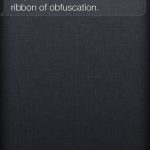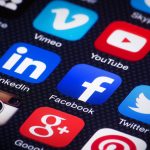Commodification and Power
Something we’ve talked a little bit about in class is the potential effects of tracking someone’s data. I tend to think the most valuable data is the most personal, and to this extent I think that data about someone’s health and wellness is potentially extremely valuable. Especially now that healthcare is tied to the government I think this data has even more valuable. It almost makes sense for healthcare to be more expensive for those people who live a more risky, unhealthy lifestyle because it’s more likely that they will accrue expenses for health insurance companies. Unfortunately currently health insurance companies don’t have access to information about people’s lifestyles and if they do they do not have pro-rated costs based on lifestyles. If I could own data about people’s lifestyle, I would tap into their bank statements to see what kind of foods they were buying and I would look for fitness apps that track people’s activity. I would then definitely sell this information to insurance companies.
I do think companies are justified in how they are taking data in exchange for commodities because our economy is capitalist. I don’t think it’s fair to assume that anything is free or without cost. To some extent, our well-being and livelihood is dependent upon companies making money, and one way they do this is by collecting our data. There is a feature on my phone that allows me to see how my phone battery is being used. Almost everyday my Spotify app is at the top of the list of things sucking up my battery life. Data could be collected about the types of music I listen to and what times ofl day I’m listening to music. Therefore, concert venues and artists are probably getting the most of my electronic use. However, the problem with my data is that I have a very, very eclectic music taste, so it would be hard to market me albums or concert tickets for a specific artist because I listen to so much. However, I do think it’s valuable for people to know that I love music. This could open up the door for companies like Beats or Sony to advertise their sound equipment to me. Additionally I imagine that my hearing will probably be pretty bad in my older years. I think looking at the data from all the time I’ve spent listening to really loud music could definitely explain this, and tie back into my initial thoughts on health insurance being more expensive for individuals who live risky lifestyles. It could be companies could look at my music history and charge me more for hearing aids because I’ve abused my ear drums with loud music.
 Previous Post
Previous Post Next Post
Next Post
I agree that the most fair and convenient way to figure out the rate of healthcare insurance for an individual is a highly personalized assessment of their lifestyle, one where they can’t lie because they don’t even know the data is being collected. However, there are always special cases where certain individuals would get screwed over. For example, my mom has already had a lot of issues with health insurance. She’s 58, eats ridiculously healthy every day (seriously, I’ve seen her eat something fried maybe once a year), and works out at least 4-5 times a week. But she had to have an aneurysm clipped. Her mom had breast cancer. She grew up on Love Canal. Put together, that makes her a relatively high risk candidate, even though, when it comes to her lifestyle, she is doing everything in her power to be a healthy individual. Therefore, I worry about how the stuff out of our control would affect our rates; a kid who grew up in a household where the parents smoked inside would probably be charged more, even though they did nothing wrong. Is that still fair?
Healthcare is another facet of our world that I hadn’t really considered as as factor of the data collection discussion, but I suppose power doesn’t exist in a vacuum. Still it’s definitely one of those things that kind of terrifying to consider people being able to control based on your health habits. On one hand yes hospitals are businesses and the cost of taking care of people is so massively expensive that it makes sense for them to run it like a business, but on the other hand there’s no denying the dystopian era strangeness that would come about with insurance companies essentially deciding who lives and who dies (or lives poorly, at least).
I think your view of the most valuable data is incredibly interesting. I am not sure what the ramifications are around collecting this type of data, but if a person or company was able to do what you have written about, it would be incredibly beneficial. I also think companies are justified in collecting data. If I am using a service, I feel that I am paying them, not with currency, but with my data. I also feel this is a fair trade, as I would rather pay with my data than with my actual money.